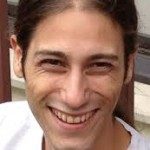Link to Pubmed [PMID] – 31247377
Curr. Opin. Immunol. 2019 Jun;60:117-123
The limited metabolic resources of a cell represent an intriguing ‘conflict of interest’ during host-pathogen interactions, as the battle for nutrients might determine the outcome of an infection. To adapt their metabolic needs, innate immune cells such as monocytes, macrophages or dendritic cells reprogram their metabolism upon activation by microbial compounds. In turn, infection by intracellular bacteria provokes metabolic alterations of the host cell that benefit the pathogen. Here, we discuss the state-of-the-art knowledge on metabolic reprogramming of host cells upon activation or infection with intracellular bacteria. The study of the host-driven and pathogen-driven metabolic alterations that seem to co-exist during infection is an emerging field that will define the metabolic pathways that might be targeted to combat infection.

